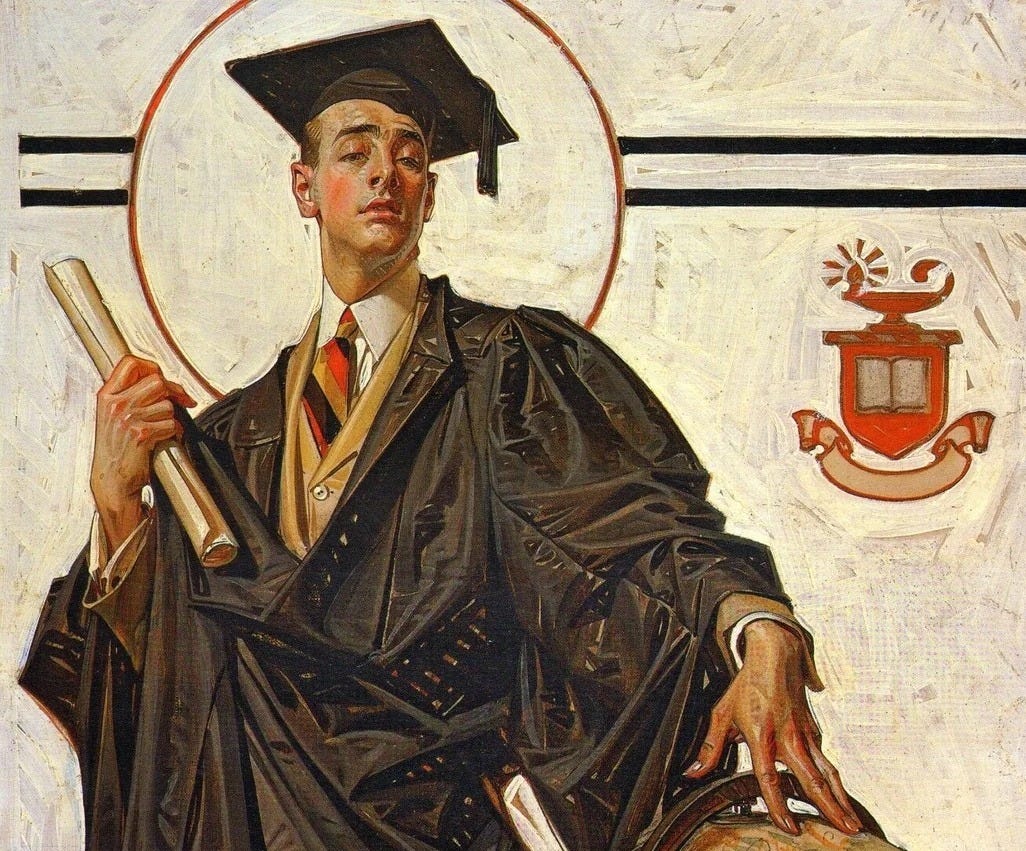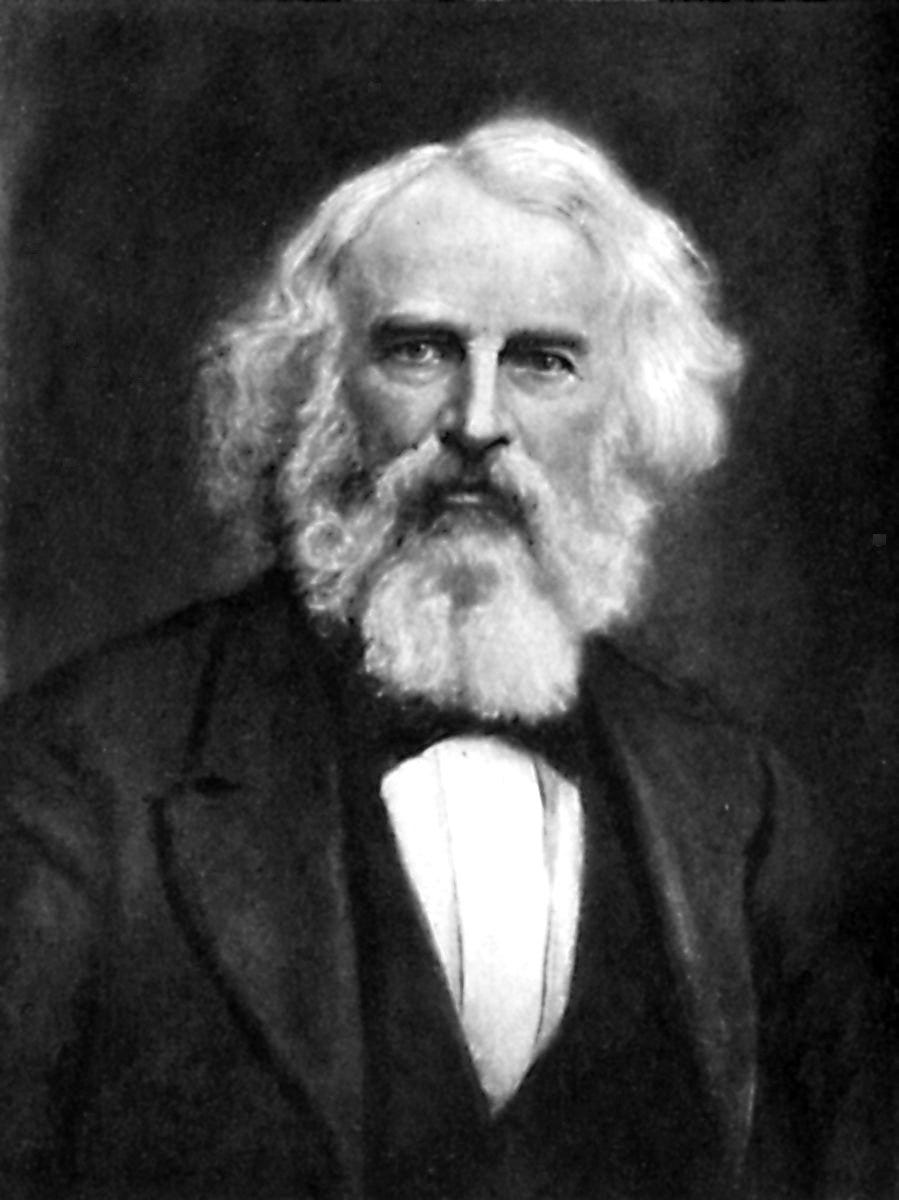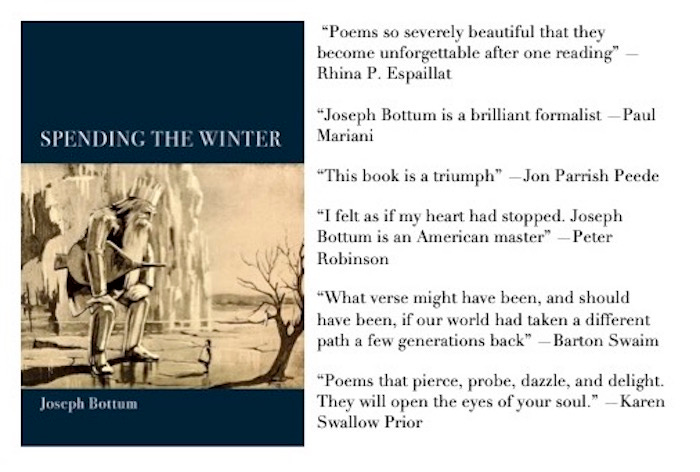Today’s Poem: Morituri Salutamus
In graduation season, says Longfellow, the old salute the young

Morituri Salutamus
Poem for the Fiftieth Anniversary of the Class of 1825
in Bowdoin College (an excerpt)
by Henry Wadsworth Longfellow
. . . Ye who fill the places we once filled, And follow in the furrows that we tilled, Young men, whose generous hearts are beating high, We who are old, and are about to die, Salute you; hail you; take your hands in ours, And crown you with our welcome as with flowers! How beautiful is youth! how bright it gleams With its illusions, aspirations, dreams! Book of Beginnings, Story without End, Each maid a heroine, and each man a friend! Aladdin’s Lamp, and Fortunatus’ Purse, ◦ Fortunatus = folklore figure That holds the treasures of the universe! with an inexhaustible purse All possibilities are in its hands, No danger daunts it, and no foe withstands; In its sublime audacity of faith, “Be thou removed!” it to the mountain saith, And with ambitious feet, secure and proud, Ascends the ladder leaning on the cloud! As ancient Priam at the Scæan gate Sat on the walls of Troy in regal state With the old men, too old and weak to fight, Chirping like grasshoppers in their delight To see the embattled hosts, with spear and shield, Of Trojans and Achaians in the field; So from the snowy summits of our years We see you in the plain, as each appears, And question of you; asking, “Who is he That towers above the others? Which may be Atreides, Menelaus, Odysseus, Ajax the great, or bold Idomeneus?” . . . And now, my classmates; ye remaining few That number not the half of those we knew, Ye, against whose familiar names not yet The fatal asterisk of death is set, Ye I salute! The horologe of Time Strikes the half-century with a solemn chime, And summons us together once again, The joy of meeting not unmixed with pain. Where are the others? Voices from the deep Caverns of darkness answer me: “They sleep!” I name no names; instinctively I feel Each at some well-remembered grave will kneel, And from the inscription wipe the weeds and moss, For every heart best knoweth its own loss. I see their scattered gravestones gleaming white Through the pale dusk of the impending night; O’er all alike the impartial sunset throws Its golden lilies mingled with the rose; We give to each a tender thought, and pass Out of the graveyards with their tangled grass, Unto these scenes frequented by our feet When we were young, and life was fresh and sweet. ═════════════════════════
The title that Henry Wadsworth Longfellow (1807–1882) chose for his 1875 graduation poem was “Morituri Salutamus” — which derives from the ancient gladiators’ call, Ave Imperator, morituri te salutant: “Hail Emperor, those who are about to die salute you.”
As it happens, there’s little evidence that gladiators commonly said this.1 But popular culture took the cry as emblematic of ancient Rome and something readers could be expected to recognize.
Certainly the line was well-known enough in the 19th century that Longfellow felt free to play with it in a poem for an American college graduation ceremony. In his hands, the cry comes from the audience: The elderly spectators are the ones near death, old age closing in on them, and they call to the fighters down in the arena. “Young men, whose generous hearts are beating high, / We who are old, and are about to die, / Salute you.”
Longfellow was not really thought a respectable figure to study when I was college-aged. None of the Fireside Poets was, really: those triple-named dwellers on New England’s 19th-century Parnassus. Their reputation as the creators of the nation’s native verse had faded in the first half of the 20th century, with Walt Whitman and Emily Dickinson rising to be declared the great American poets of the 19th century. Not that they don’t deserve their accolades, but I sometimes suspect that a portion of the 20th-century celebration of Dickinson and Gerard Manley Hopkins (both unpublished in their lifetimes) came from the Edwardian sneer at the prior age — as if to say, Those stupid Victorians didn’t even know who their best poets were.

It took me some time in adulthood to look back at Longfellow and appreciate his gifts. Here at Poems Ancient and Modern we’d published “The Tide Rises,” “Summer Day by the Sea,” and “The Children’s Hour,” with only the last being one of Longfellow’s popular verses. And now, in honor of the approaching season of college and high-school graduation ceremonies, we offer an excerpt from “Morituri Salutamus,” Longfellow’s 284-line “Poem for the Fiftieth Anniversary of the Class of 1825 in Bowdoin College.”
That college in Maine was a serious place in those days, with Nathaniel Hawthorne and Longfellow both in the class of 1825, and the future president, Franklin Pierce, a friend just a year ahead of them. Despite political differences, Hawthorne would write the 1852 campaign biography Pierce needed for his presidential run. (Urged by his publisher to remove a later book’s dedication to Pierce, Hawthorne replied, “If he is so exceedingly unpopular that his name is enough to sink the volume, there is so much the more need that an old friend should stand by him” — and we could all hope to have such friends.) In 1864, Pierce and the ill Hawthorne undertook a tour of the White Mountains in New Hampshire, a trip on which Hawthorne passed away in his sleep, with Pierce discovering his body.
Pierce himself would die in 1869, both he and Hawthorne gone before Longfellow’s 50th college anniversary in 1875. As his poem notes, “my classmates; ye remaining few, / That number not the half of those we knew.”
Still, in addition to his play with Roman gladiators, Longfellow sees a parallel to the Trojan scene of old men watching from the city wall as the young warriors march out: “So from the snowy summits of our years / We see you in the plain.” It seems to me a choice analogy, as the poet deploys his rhymed pentameter couplets — both to encourage the new generation rising up to take the place of their predecessors and to urge the old generation not yet to surrender to lassitude and melancholy.






Brings a smile to the lips of those of us in our 80’s who look upon those at the “mid-century” mark as still children.
We're still living in the Modernist contempt for the Victorians, more's the pity. Joyce's reference to "Lawn Tennyson" comes to mind.